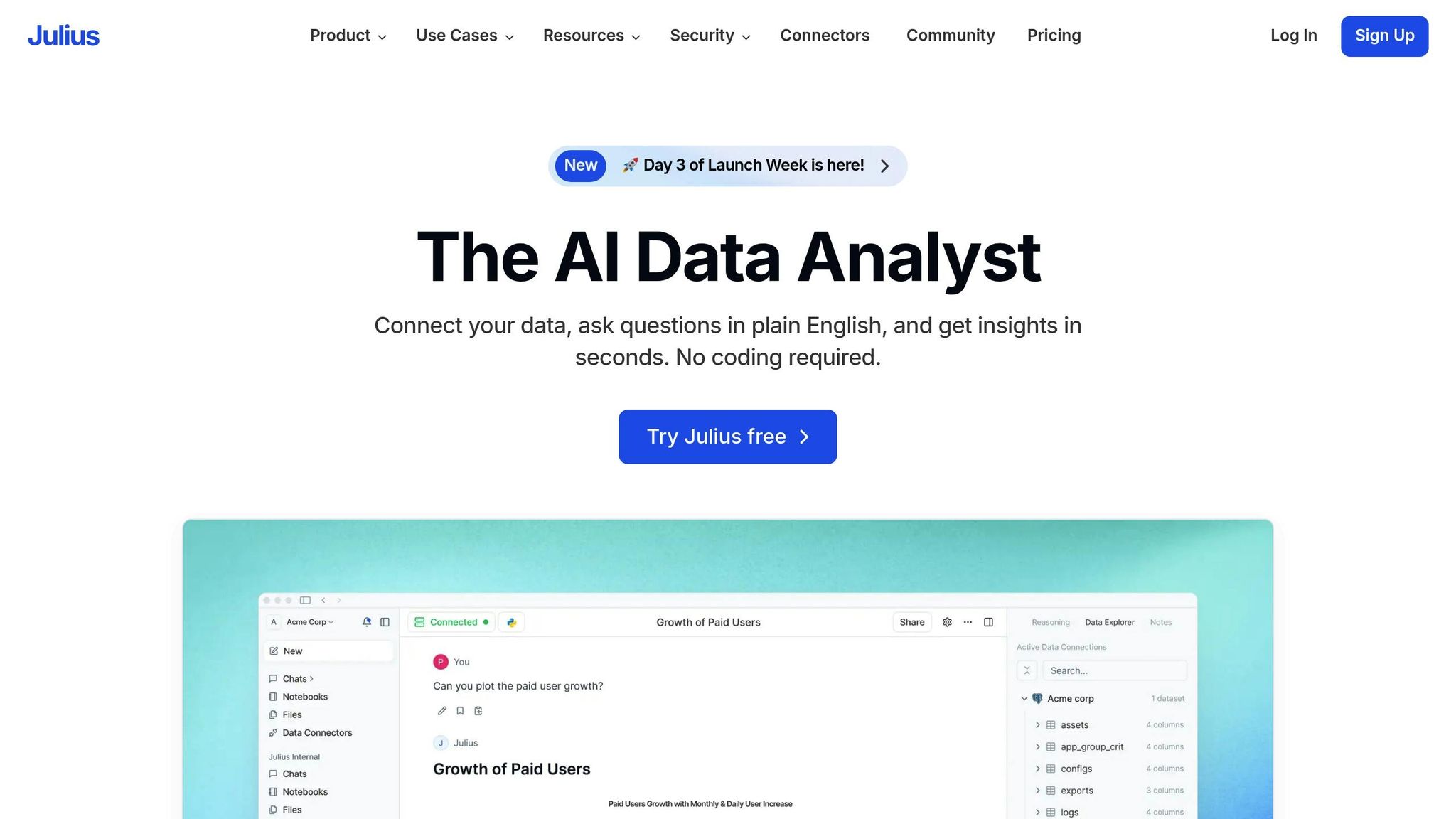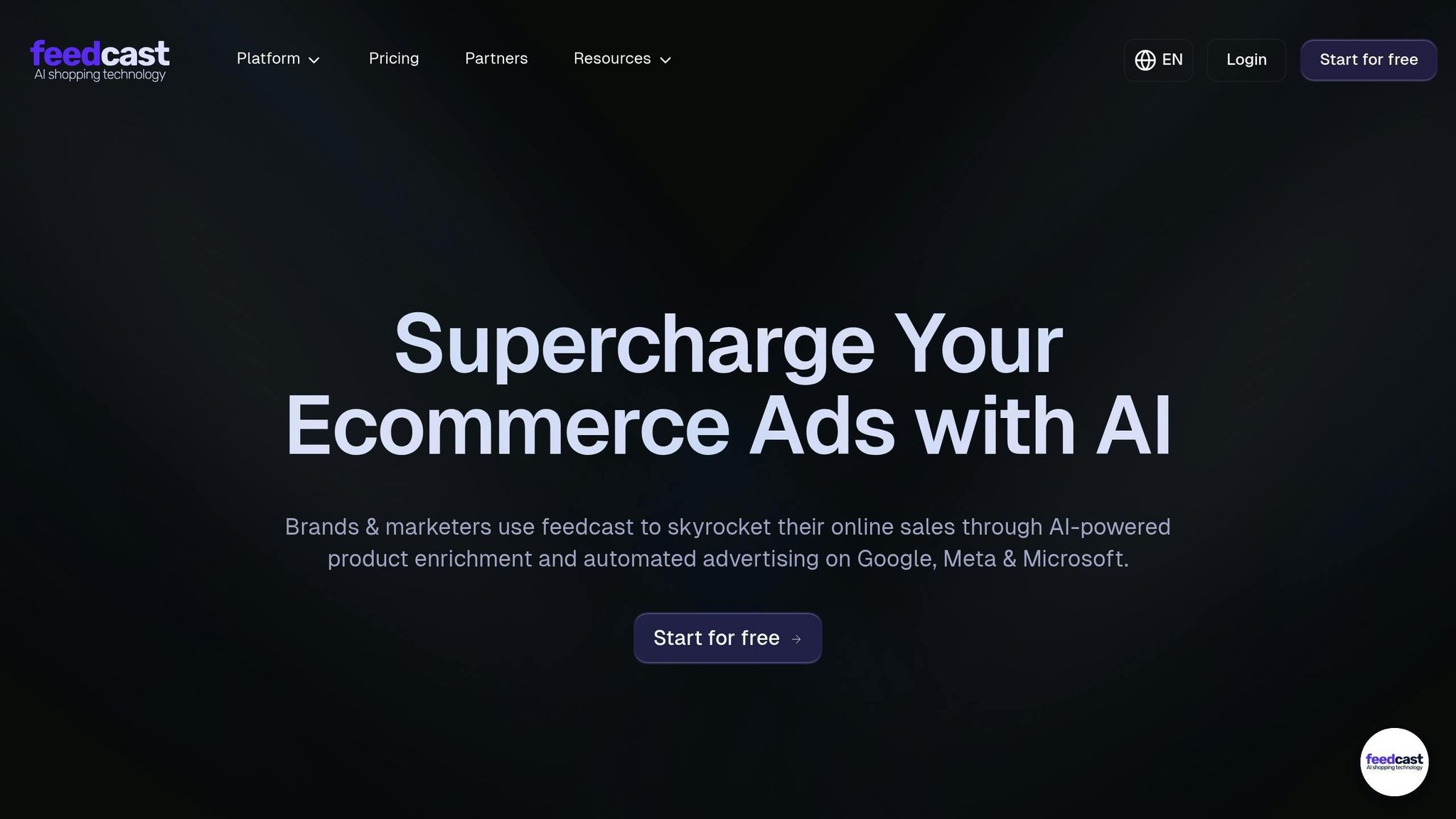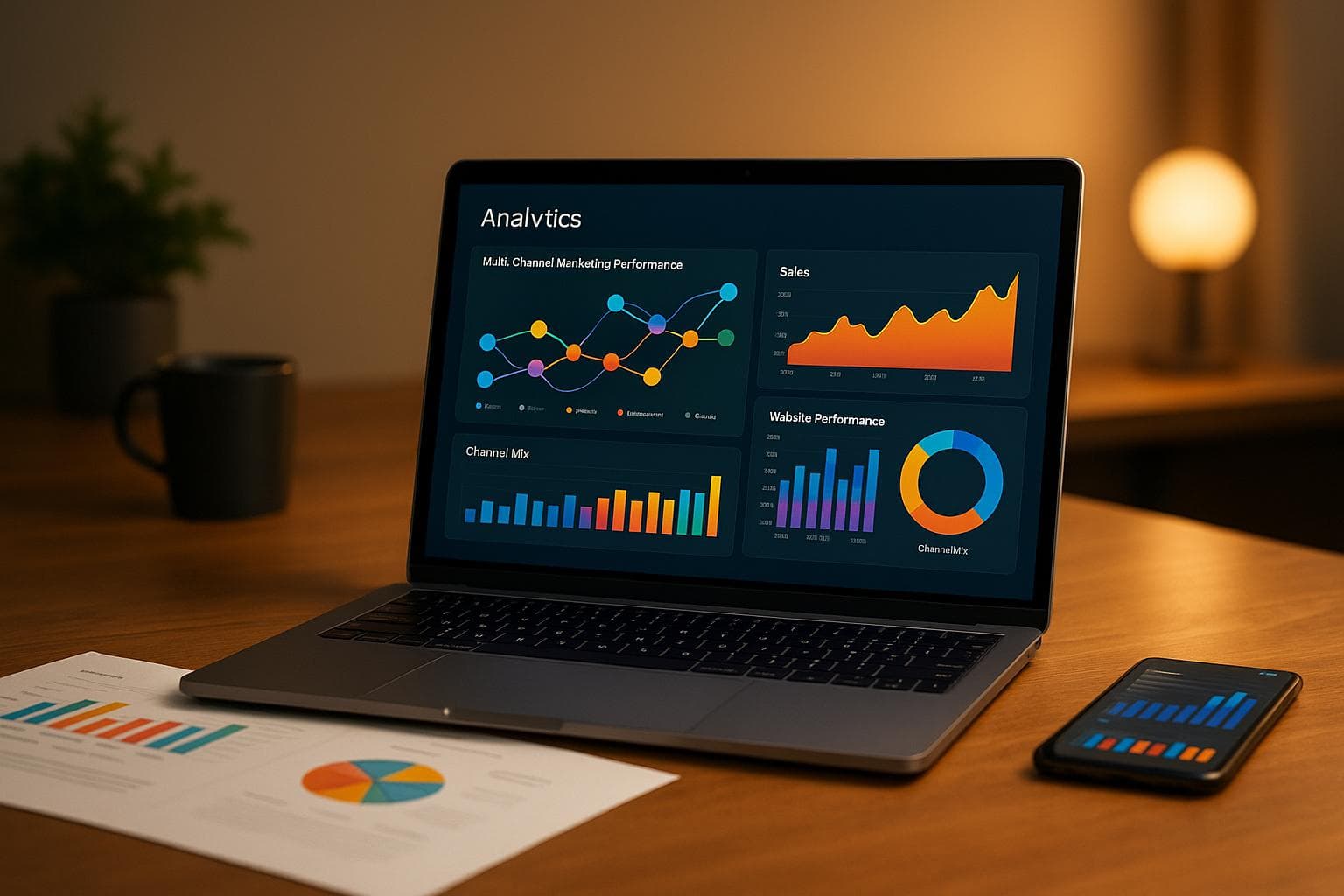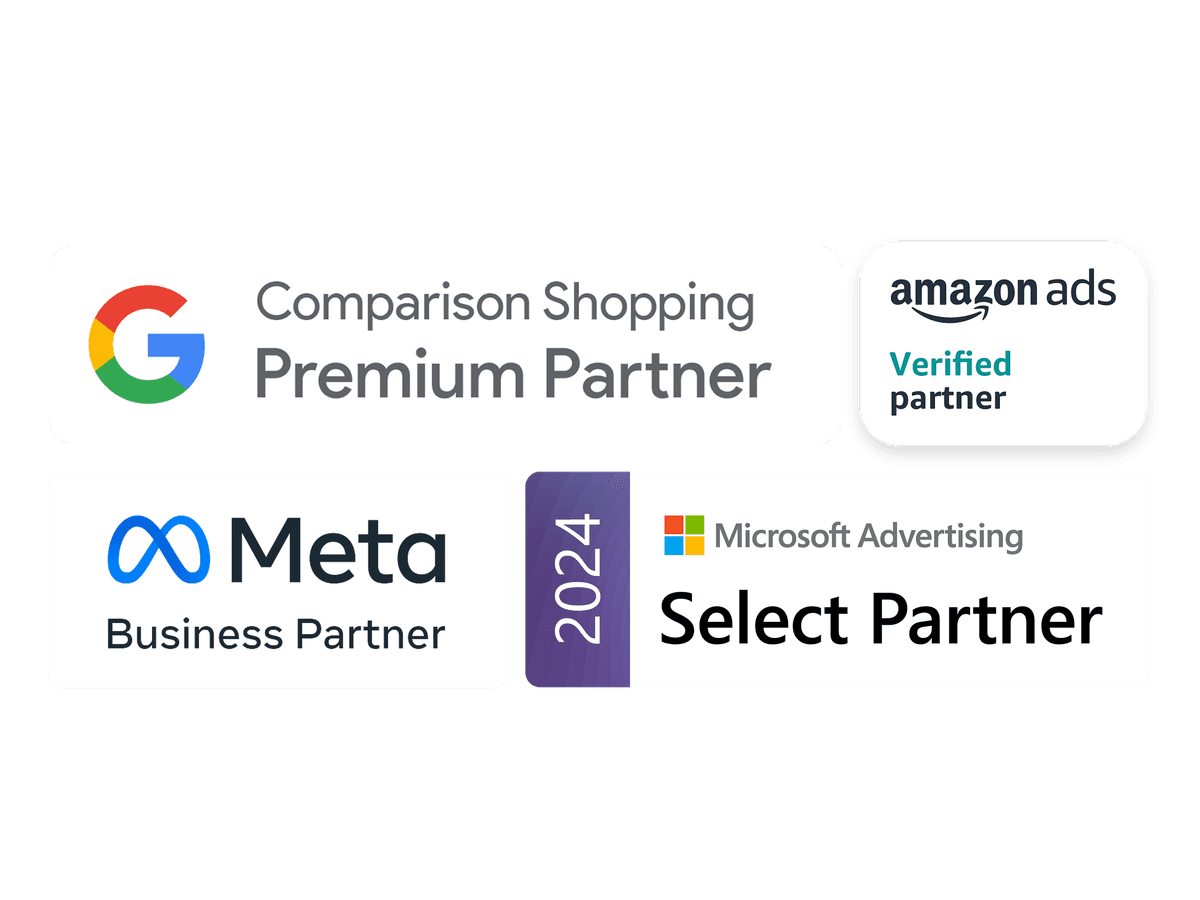AI in Multi-Channel Campaign Analytics
Explore how AI streamlines multi-channel campaign analytics, enhancing efficiency, boosting ROI, and transforming digital marketing strategies.
AI is simplifying how businesses manage advertising on platforms like Google, Facebook, and Instagram. Instead of juggling fragmented data and manual tasks, AI integrates everything into one platform, making it easier to analyze and optimize campaigns. Here's why it matters:
- Centralized Data: AI combines metrics from multiple platforms into one place, providing a full view of campaign performance.
- Automation: Tasks like data collection, audience targeting, and budget adjustments are handled automatically.
- Real-Time Insights: AI detects trends, identifies issues, and adjusts campaigns instantly to improve results.
- Better ROI: By tracking customer behavior and optimizing campaigns, businesses can allocate resources effectively and reduce wasted spending.
Tools like Feedcast.ai are helping over 3,000 e-commerce brands simplify multi-channel advertising. Features include a unified dashboard, automated product feed management, and advanced analytics, all designed to save time and improve performance.
AI is transforming digital marketing by making it faster, smarter, and more efficient. For businesses, adopting AI tools is key to staying competitive in today’s fast-paced market.
Stop wasting ad spend: Julius AI multi-platform analysis

Key Benefits of AI in Multi-Channel Campaign Analytics
AI is revolutionizing how businesses manage their marketing campaigns by tackling the challenges of fragmented data and tedious manual analysis. By replacing guesswork with actionable insights, AI simplifies processes and delivers results that would be nearly impossible to achieve through human efforts alone. Its advantages shine in areas like automation, data precision, and real-time campaign adjustments.
Automated Campaign Management
Manually gathering data from platforms like Google Ads, Facebook, and Microsoft Ads is time-consuming and inefficient. AI steps in to streamline this process by automatically consolidating data from multiple sources. But it doesn’t stop there. AI also takes on tasks like audience segmentation, budget allocation, and performance tracking. Its real strength lies in real-time optimization - adjusting bids, reallocating budgets, and pausing underperforming ads without human intervention. This allows teams to focus on strategy while AI handles the heavy lifting, making it easier to scale campaigns without significantly increasing costs.
Improved Data Insights and Accuracy
AI excels at uncovering patterns and connections that traditional analytics might miss. For instance, it can link a drop in Facebook ad performance to recent changes on your website - insights that might go unnoticed without AI’s analytical power. By analyzing hundreds of behavioral signals, AI creates dynamic micro-segments, enabling more precise targeting and better campaign outcomes. It also enhances attribution by identifying which channels are driving engagement, offering a complete view of the customer journey. Plus, AI eliminates common errors and biases found in manual analysis, ensuring decisions are based on accurate and reliable data. These enhanced insights allow campaigns to be fine-tuned in real time for maximum impact.
Real-Time Optimization for Higher ROI
Speed is where AI truly stands out. It quickly identifies which efforts produce the most significant results, helping businesses allocate resources where they’ll have the greatest impact. If engagement shifts between platforms, AI can reallocate budgets in minutes, ensuring no money is wasted and new opportunities are seized immediately. By delivering tailored messages to customers at the perfect time and on their preferred channels, AI makes personalized marketing more accessible than ever. It even predicts customer behavior and seasonal trends, helping marketers stay ahead of the curve. With AI’s ability to pinpoint where customers drop off in their journey, businesses can create smoother paths to conversion, leading to a stronger return on investment overall.
How Feedcast.ai Improves Multi-Channel Campaign Analytics

Feedcast.ai takes the power of AI and applies it to multi-channel campaign analytics, offering tools that simplify management and elevate performance. Already trusted by over 3,000 e-commerce brands to improve their advertising results [1], it shows how AI can address the everyday challenges businesses face in digital advertising.
One Platform for Multi-Channel Advertising
Running campaigns on platforms like Google, Meta (Facebook and Instagram), and Microsoft Ads often means dealing with multiple dashboards, separate logins, and scattered reporting systems. Feedcast.ai solves this headache by bringing everything together into a single, unified platform.
This isn’t just about pulling data into one place - it’s about creating a hub where marketers can monitor, adjust, and optimize campaigns across all channels from a single interface. Instead of wasting hours switching between platforms, teams can use the consolidated dashboard to track performance metrics, spot trends, and address issues in real time. This streamlined approach ensures that no opportunity is missed, and problems are addressed before they escalate. It also lays the groundwork for smoother product feed management.
AI-Powered Product Feed Management
Managing product feeds is often a stumbling block in e-commerce advertising. Feedcast.ai tackles this by using AI to automate the process, importing product data from platforms like Shopify, WooCommerce, and Prestashop, as well as from file formats like Google Sheets, CSV, and XML.
But it doesn’t stop at importing data. The AI actively enhances product information to improve visibility and performance on advertising platforms. This includes fine-tuning product titles, enriching descriptions, and aligning attributes with platform-specific requirements. It even identifies and fixes feed errors automatically, ensuring that product data stays accurate and up-to-date across all channels.
This automation saves teams from the time-consuming task of manual data preparation. Combined with the unified dashboard, it ensures that product information flows smoothly, giving marketers more time to focus on strategy. The platform’s flexible AI credits system, ranging from 5 credits on the free plan to unlimited on the Premium plan, scales to meet the needs of businesses of all sizes.
Advanced Analytics and Smarter Optimization
Feedcast.ai goes beyond basic reporting by turning its centralized data into actionable insights. Through its unified dashboard, businesses can segment data, create custom reports, and track key metrics like engagement rates, conversion rates, and ROI - all in one place.
This detailed analysis allows marketers to experiment with different strategies, creative elements, and audience segments to continuously improve campaigns. The platform’s AI can even uncover hidden connections, like linking performance drops to recent website changes, without requiring marketers to dig for answers themselves.
In the background, Feedcast.ai’s optimization tools work continuously, identifying the top-performing 20% of marketing efforts that drive 80% of results [2]. This ensures that budgets are directed toward what works, cutting down on wasted spending.
For businesses aiming to understand how various channels contribute to their overall goals, Feedcast.ai provides a clear attribution model. This helps identify underperforming campaigns and supports smarter, data-driven decisions about budget allocation. With unified tracking and simultaneous testing, Feedcast.ai offers a complete view of marketing initiatives, turning advertising into a reliable engine for growth.
sbb-itb-0bd1697
Future Trends in AI-Driven Campaign Analytics
AI technologies are poised to reshape multi-channel campaign analytics, pushing campaigns to become smarter, more efficient, and more profitable. Building on existing capabilities, these advancements will enable deeper integration and sharper decision-making in e-commerce marketing. As Feedcast.ai continues to refine multi-channel campaign analytics, upcoming AI trends promise to take performance to the next level.
Advanced Personalization
AI is moving beyond traditional segmentation methods to deliver hyper-personalized marketing experiences. Instead of using broad customer categories, AI now analyzes countless behavioral signals to form dynamic micro-segments that adjust in real time. By interpreting sentiment from reviews, live chats, and social media, AI creates a detailed understanding of individual preferences. This allows marketers to predict the best content, timing, and even personalized pricing strategies to boost conversion rates. By tracking customer interactions across multiple channels, AI ensures messaging is uniquely tailored to each viewer’s motivations, offering highly relevant and impactful experiences [2] [3] [5].
Predictive Analytics and Automation
Predictive analytics is shifting marketing from reactive to proactive. With AI, businesses can anticipate opportunities and challenges before they fully emerge [6]. For example, AI can forecast product demand, predict peak sales periods, and estimate the revenue effects of pricing changes - all before significant investments in inventory or advertising [2]. A standout application is churn prediction: subtle signs like lower email engagement, shorter website visits, or unusual purchasing patterns can signal at-risk customers. AI flags these behaviors early, allowing businesses to launch targeted retention efforts.
Automation is also transforming campaign management. AI can dynamically adjust targeting, timing, and messaging based on real-time performance metrics [2]. This not only streamlines routine tasks like data preparation and reporting but also frees marketing teams to focus on strategy and creativity. Additionally, AI uncovers hidden patterns and insights that might otherwise go unnoticed, giving marketers a significant edge.
As these technologies evolve, platforms like Feedcast.ai are working to integrate these advanced tools into user-friendly solutions, making sophisticated AI-driven analytics accessible to e-commerce businesses of all sizes.
Conclusion: Using AI in Multi-Channel Advertising
AI takes the guesswork out of multi-channel campaign analytics, turning it into a proactive, data-driven process. The result? Smarter strategies and smoother workflows that save time and deliver measurable results.
Why AI Matters in Multi-Channel Advertising
AI-powered advertising gives businesses a clear edge by combining precision and efficiency. It identifies the most impactful marketing efforts, ensuring resources are allocated where they matter most. Plus, it takes over time-consuming tasks like data preparation and reporting - tasks that often eat up more than half of a marketing team's productive hours [2]. By automating these processes, AI not only saves time but also minimizes errors and eliminates biases that can creep into manual analysis.
One of AI's standout abilities is its knack for uncovering connections and insights that traditional tools often miss [2]. With real-time adjustments, campaigns stay sharp and responsive [4]. On top of that, AI makes personalization at scale possible. By analyzing customer behavior and predicting preferences, it helps deliver tailored recommendations that resonate with individual tastes, boosting engagement and driving sales [4]. These capabilities position businesses to act quickly and effectively in today’s fast-moving market.
A Roadmap for E-commerce Success
For e-commerce brands, tapping into AI's potential isn't optional - it’s essential. Traditional marketing methods simply can't meet the demand for personalized, relevant customer interactions [4].
Using tools like Feedcast.ai allows businesses to centralize their advertising efforts and immediately benefit from AI-driven enhancements. Feedcast.ai, trusted by numerous e-commerce brands, simplifies campaign management across major platforms like Google, Meta, and Microsoft. Its unified dashboard and AI-powered product feed enrichment improve ad visibility and performance. As a certified Google CSS partner, Feedcast.ai can also help businesses save up to 20% on Google Shopping campaigns.
To get started, businesses should focus on consolidating their advertising efforts onto a single platform. From there, they can gradually adopt advanced features like predictive analytics and dynamic segmentation. Taking these steps now ensures stronger targeting, greater efficiency, and higher engagement.
AI's impact on multi-channel advertising goes beyond just making processes more efficient. It equips businesses with the strategic tools they need to stand out and thrive in an increasingly competitive digital landscape.
FAQs
How does AI make managing multi-channel advertising campaigns more efficient?
AI takes the complexity out of multi-channel advertising by automating essential tasks like managing product data, creating ads, and optimizing campaigns. This not only saves businesses valuable time but also boosts performance by handling tasks that would otherwise require significant manual effort.
For example, AI can refine product data to improve ad visibility, craft platform-specific ad copy, and implement advanced targeting to connect with the right audience. These tools make it easier for businesses to run campaigns across platforms such as Google, Meta, and Microsoft Ads, achieving stronger results with less hassle.
What benefits does Feedcast.ai provide for e-commerce brands in campaign analytics?
Feedcast.ai makes campaign analytics easier for e-commerce brands by providing a centralized dashboard to monitor ad performance across all connected channels. With features like real-time metrics, custom reports, and performance segmentation, businesses can dive deep into their data to fine-tune strategies and boost results.
By bringing all analytics into one place, Feedcast.ai enables brands to make smarter, faster decisions, streamlining the process and enhancing overall campaign outcomes.
How does AI improve personalization and campaign performance in multi-channel advertising?
AI transforms multi-channel advertising by diving into data to craft campaigns that resonate on a personal level. It fine-tunes product details, boosts ad visibility, and creates customized ad copy tailored to specific audience segments. With smart targeting, businesses can zero in on their most engaged customers, fine-tuning campaigns to drive better results and improve ROI.
Yohann B.










